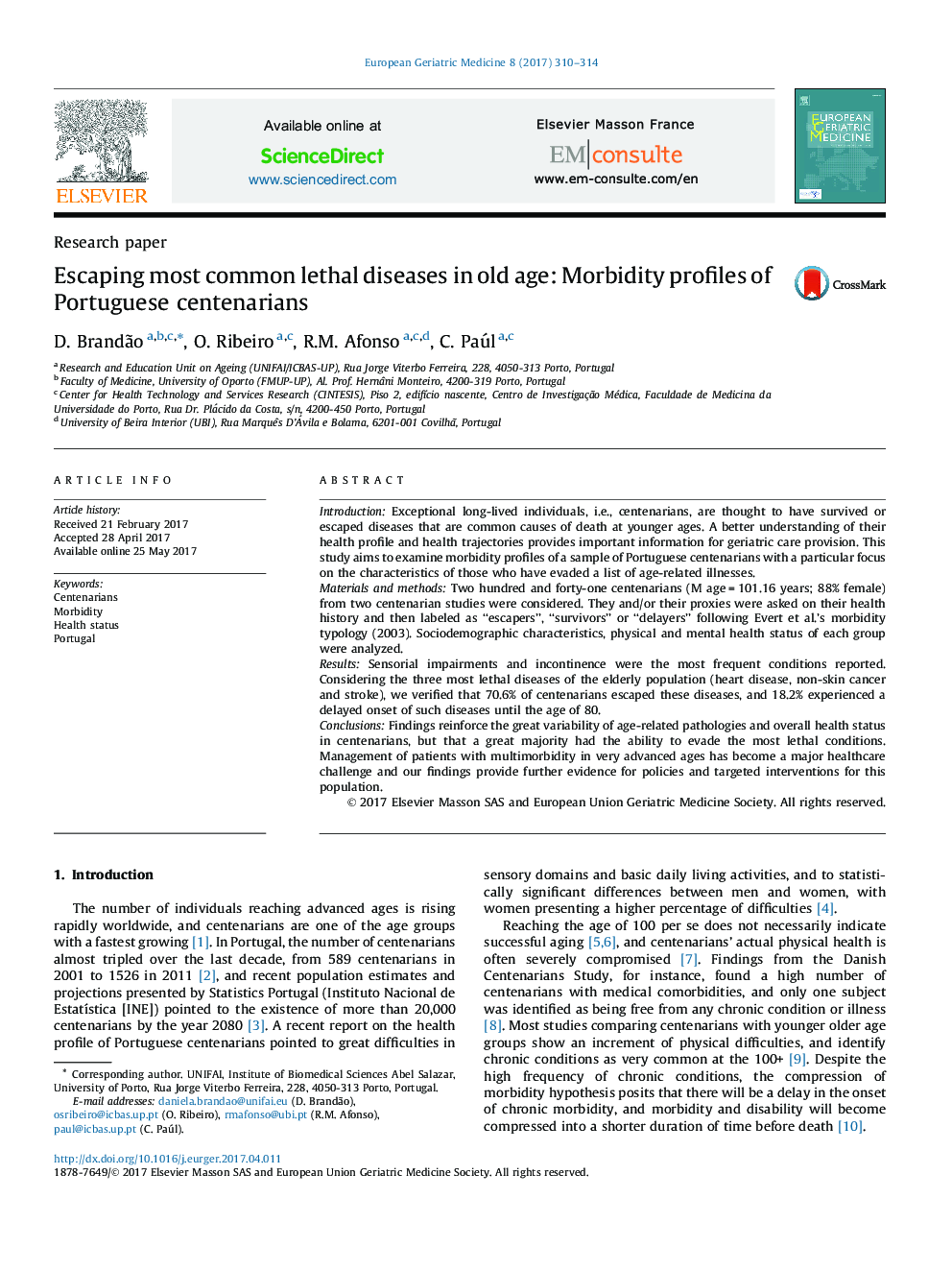| Article ID | Journal | Published Year | Pages | File Type |
|---|---|---|---|---|
| 5662627 | European Geriatric Medicine | 2017 | 5 Pages |
IntroductionExceptional long-lived individuals, i.e., centenarians, are thought to have survived or escaped diseases that are common causes of death at younger ages. A better understanding of their health profile and health trajectories provides important information for geriatric care provision. This study aims to examine morbidity profiles of a sample of Portuguese centenarians with a particular focus on the characteristics of those who have evaded a list of age-related illnesses.Materials and methodsTwo hundred and forty-one centenarians (M age = 101.16 years; 88% female) from two centenarian studies were considered. They and/or their proxies were asked on their health history and then labeled as “escapers”, “survivors” or “delayers” following Evert et al.'s morbidity typology (2003). Sociodemographic characteristics, physical and mental health status of each group were analyzed.ResultsSensorial impairments and incontinence were the most frequent conditions reported. Considering the three most lethal diseases of the elderly population (heart disease, non-skin cancer and stroke), we verified that 70.6% of centenarians escaped these diseases, and 18.2% experienced a delayed onset of such diseases until the age of 80.ConclusionsFindings reinforce the great variability of age-related pathologies and overall health status in centenarians, but that a great majority had the ability to evade the most lethal conditions. Management of patients with multimorbidity in very advanced ages has become a major healthcare challenge and our findings provide further evidence for policies and targeted interventions for this population.
